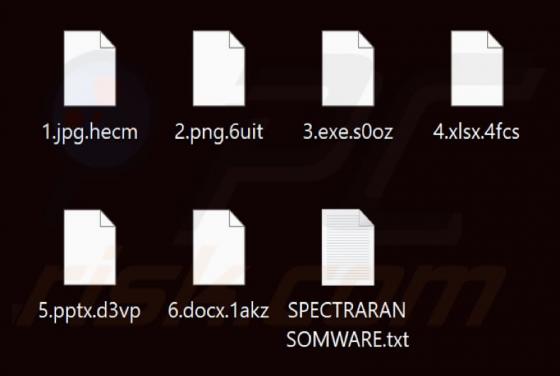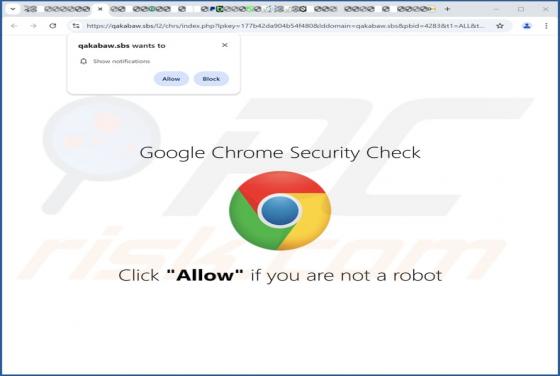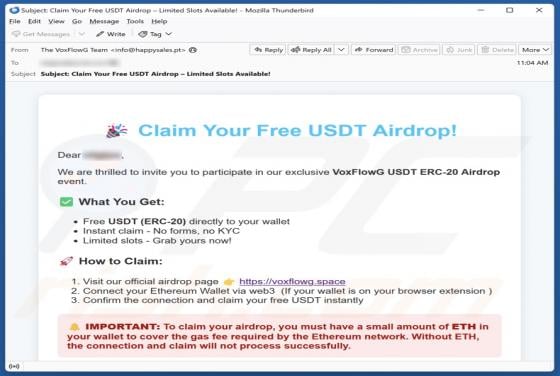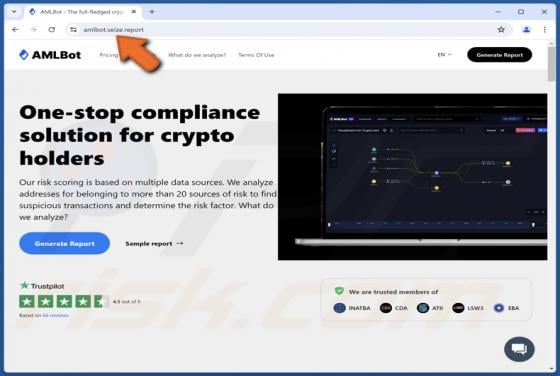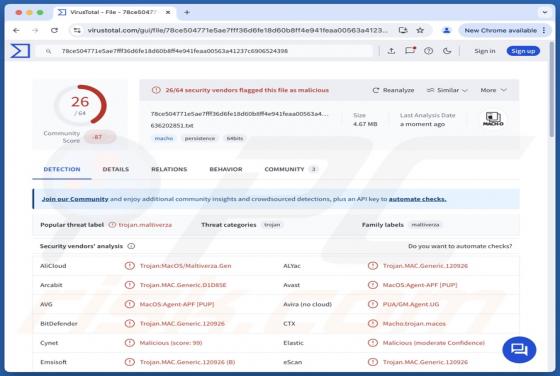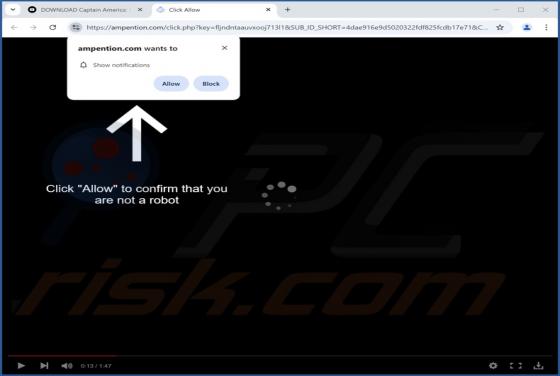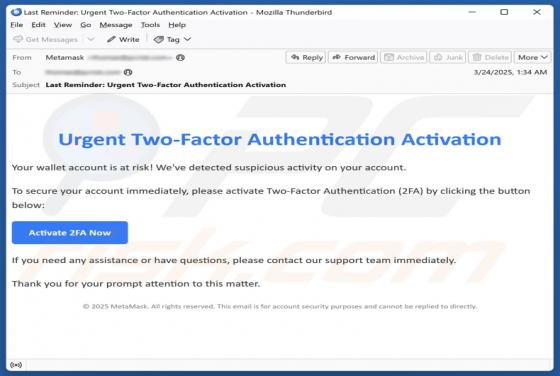
Two-Factor Authentication Activation Email Scam
We have examined the email and found that it is a phishing email designed to trick visitors into disclosing personal information on a fake web page. It is disguised as a "last reminder" regarding Two-factor authentication (2FA) from MetaMask. Whoever receives this email should ignore it to avoid p
